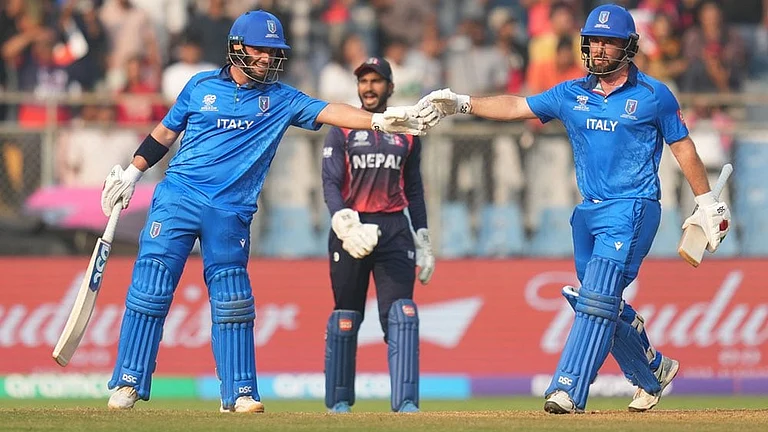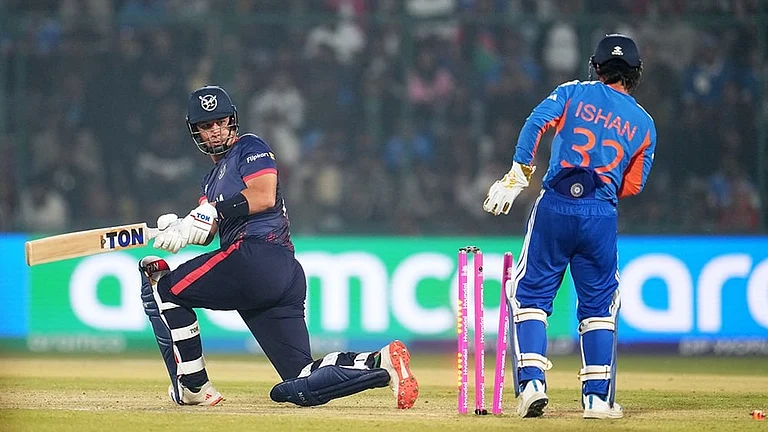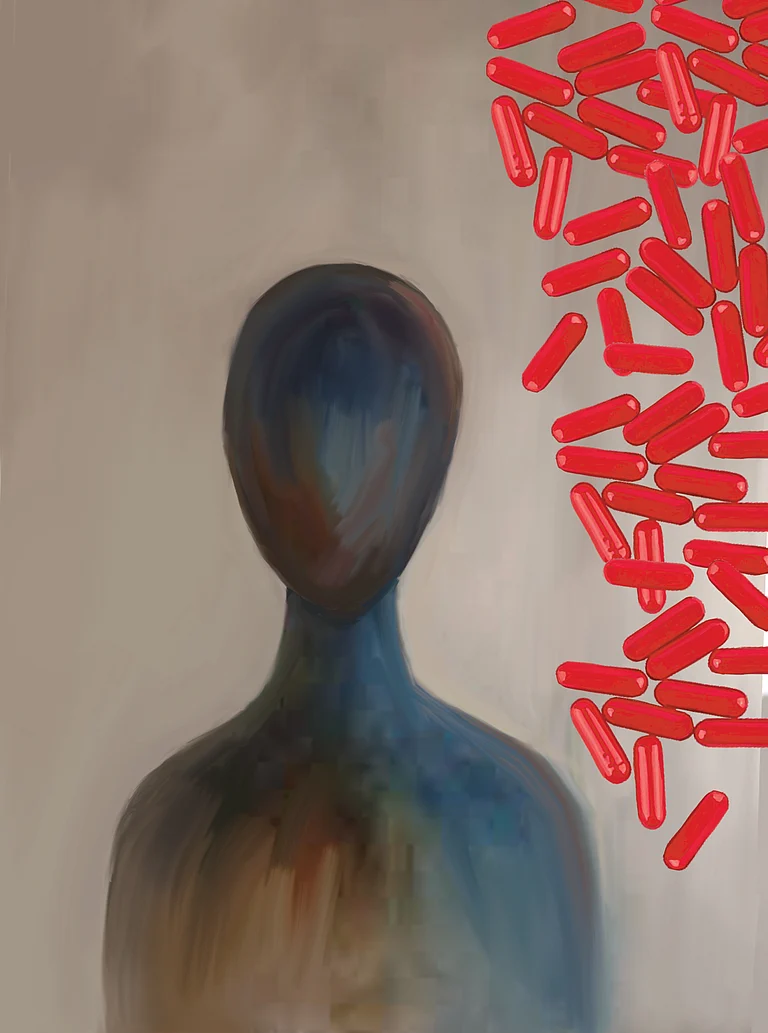Dia Mirza became a household name after a win at the Miss Asia Pacific International back in 2000. However, over the years, she has worn different hats. Besides being one of the most sought-after actresses in the past two decades, she has also dabbled in numerous other ventures.
Talking to Prateek Sur, Dia Mirza opens up about how she manages to do so much, how she got into the world of activism, how her family reacts to her initiatives and lots more. Excerpts from the candid chat:
In times when people are trying to just manage to be good at one thing, you’re someone who is mastering too many feathers on your cap. How do you manage to get so much time?
I’m not sure whether I've mastered anything but I’m definitely in the pursuit of growth and doing things where there is learning and improvement at the centre of it. I find that time opens up for me when I do things that are driven by purpose and passion, things that I love. Of course, it helps tremendously to have a strong support system at home, be it in the form of my mother who looks after my child when I have to travel for work and my husband who steps in whenever he needs to, so there are a lot of shared responsibilities there running our home taking care of our children. When it comes to work, I have a wonderful team who works hard to make sure that we manage timelines efficiently and do what needs to be done within the timeline. The bottom line is when one is driven with passion and purpose everything falls into place and time opens up.
You’re a producer, you’re UN Secretary General’s Advocate for Sustainable Development Goals, you’re UNEP Goodwill Ambassador, you’re an Ambassador of Wildlife Trust of India, you’re the Artist Ambassador of Save The Children, you’re the Board Member Sanctuary Nature Foundation, you’re Global Ambassador IFAW – am I missing out any other titles that you’re still managing?
Recently, I have attempted to echo the idea of conscious capitalism by becoming an eco-investor. In this capacity, I’ve already committed resources and energy to green brands like Beco, Shumee, Greendigo, and Allter and will also be on the lookout for more individuals and companies that are creating sustainable solutions and need little help. We need to start looking at a more sustainable lifestyle as the norm and not the exception anymore. And to do that, more such green brands need to come into the mainstream. As an investor, my goal is to work towards that ideal.
And all of this after being a mother, a wife, and a homemaker. Can you give some tips to the ladies out there about how they should manage their time or their aspirations even after having a family and its associated boundaries?
I can only share what works for me. I sleep and wake up early so that I have the early mornings to myself, which I invest in some self-care. I meditate, work out, and use those moments to reflect on what has to be pursued in the day. Before I sleep, I have a checklist that I go through, I make notes, and sometimes if I’m feeling restless or unhappy, or uncertain about something, I write about it and it helps. The other thing that I do is delegate; delegating work to those who can do it aids in my planning, as well as getting more things done. Meditation works wonders for me, as it helps in managing my mood and people and I feel a lot of what we do is about managing people and the challenging situations that we face, something that we all have to do quite regularly. I am clear about what I want to do. My top priority right now is my infant child. My time is allocated only to things that are necessary and are deeply entwined with my purpose. I have the luxury to say no too, but that’s a luxury well-earned over some time. I find that being able to say no to a job that doesn't satisfy you, that you don't care deeply about, helps you make time to think about things that matter. I find that being financially stable is very empowering. Having been financially independent at an early age allowed me to make choices for which I have no regrets, as those choices were my own. Lastly, just go to the job well-prepared. As women, we have to work harder in the workplace, and being prepared for it helps us to perform better.
Has motherhood changed you in any way? Do you select projects now thinking that your kids would go on to see that film or that show when they grow up?
Yes, motherhood has been transformative for me in so many ways. There should never be a day when people don't appreciate what their mothers do. I have deep gratitude every single day. I am privileged that I can make choices centred around him. It is so important for children to be raised in an environment where they appreciate, respect, and understand that both their parents are going to seek a life that allows them to live to their full potential. Yes, while picking up films I think about my child.
You’ve been actively championing numerous causes and trying to bring global attention to them. Was ‘activism’ always an ingrained part of you? Or was it something that you slowly and steadily learned along the way?
I owe it to my parents, and the kind of upbringing I had. I’ve been taught to be an active citizen, a participative citizen, caring and empathetic. It’s ingrained in my DNA. And it is also something that I’ve innately felt, it's the way that I have always reacted to the situations around me in that manner. I am not someone who can sit on the side bench and not be an active part of the solution.
All the movements like beating plastic pollution, wildlife conservation or green living, or climate change – what do you do to make your family also follow these ideals compulsorily in their daily lives?
In my passion for and fight against climate change, my family has always played a significant part. Connecting with nature as a kid through activities like rock climbing and bird watching was one of the things my parents instilled in me. We also make an effort to live by these ideals by choosing sustainable options over plastic in our daily lives. Using 100% biodegradable sanitary napkins, metal bottles, bamboo toothbrushes, sustainable fashion, and sustainable kidswear for my son are only some of the many ways we try to adopt green and practical lifestyle solutions in our family. Keeping all this in mind the companies I invested in Beco, Shumee, Greendigo, and Allter are the sustainable, environmental-friendly products that I use and my family too, for instance, when my son was born, we started looking for toys that were natural, sustainable and made of non-toxic and organic material then I discovered Shumee. I think my family also has started to make these choices consciously as I strongly believe that change begins at home.
If I’m not wrong you recently turned vegan as well. What prompted that?
I was a vegan for three years. When I fell ill due to other reasons, the doctors recommended introducing some meat-based protein back into the food. Still, the majority of my food intake is plant-based, with some meat-based protein.
Does your family also join you in being vegan? Or will your kid be allowed to eat whatever he wishes to?
I would want them to make informed choices of their own. But it’s also important to follow what the paediatrician instructs. Samaira is inherently vegetarian, so most of her meals are vegetarian, and whenever she does ask for anything, we never say no, there are no restrictions. And it’s the same with my mom, and my husband. Avyaan still has some form of protein in his diet as he’s very young. But I am curious to know more about the parents practising veganism with their children, and how it affects their health. Honestly, every one of us at home eats a lot of seasonal fruits and vegetables as much as possible, with a really small percentage of meat in our consumption.



























